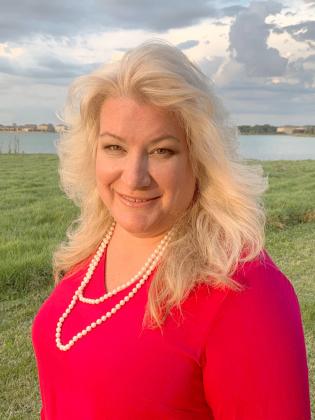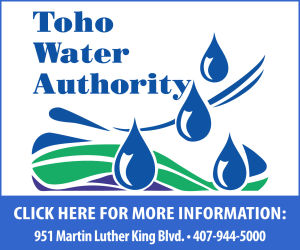April is National Minority Health Month (NMHM), a nationwide initiative to address the health needs of minorities in the United States, including Hispanics, Asians, African Americans and Native Americans.
The goal of NMHM is to help eliminate the disproportionate strain of premature death and preventable illness and disease in minority populations. The expansive, annual initiative is managed nationally and executed through prevention, early detection, healthcare management and control of disease complications.
With Osceola County’s population comprised at 55-percent of residents identifying as Hispanic and 14 percent African American, we felt it important to highlight the significance of this month’s nationwide healthcare commitment for minority health; the projects history and hopefully educate and increase awareness of the annual campaign.
NMHM was incepted two decades ago, in 2001, when the National Minority Health Foundation dedicated April as a month to focus on health-related minority initiatives. This, in response to Healthy People 2000, a second nationwide health-promotion and disease-prevention project by the United States Department of Health and Human Services; today, Healthy People and the National Minority Health Foundation have become one team under the umbrella of the National Minority Quality Forum which oversees, educates, and promotes NMHM.
Accordingly, the National Minority Quality Forum, the educational research arm focuses on ensuring high-risk, racial, and ethnic populations receive optimal health care. Though not surprising, with our nation’s yearlong COVID battle, the pandemic has disproportionately impacted racial and ethnic communities more than non-minority populations. Not astonishing, the 2021 NMHM theme is titled Vaccine Ready, all positioned to encourage everyone, but specifically minorities to attain the COVID vaccine, when available. As referenced on the Center for Disease Control and Prevention website, all COVID-19 vaccines currently available in the United States have been shown to be highly effective at preventing COVID-19. Further, CDC experts state by attaining the vaccine, “it may help from becoming seriously ill if one attracts the virus.” This, an important message for the minority populations, which have been heavily impacted by COVID.
From a local perspective, the Osceola Council on Aging (OCOA) has made much headway in providing healthcare services for our expansive senior and minority populations. From a clinical care standpoint, the OCOA Health Clinic offers primary care, secondary care, specialty care and diagnostic services.
Historically, the council began providing free healthcare through the OCOA Health Clinic in 2005 in response to the large number of uninsured individuals using local emergency rooms. Though unfortunately, without follow up, the underlying issues for these patients using emergency rooms, many of whom were chronically ill, were not addressed.
Fortunately, by 2010, the council began providing secondary care and diagnostic testing to address the critical lack of care for the chronically ill and uninsured in Osceola County. The Health Clinic served more than 1,600 community residents in 2020, which was nearly twice the number of clients we had served in previous years. Among those patients, approximately 67 percent were Hispanic.
We Care Osceola, the primary care component of the Health Clinic, provides free health care to lowincome, uninsured, Osceola County residents through the support of volunteer physicians, practitioners and providers. Volunteer healthcare professionals are recruited under the protection of Sovereign Immunity to care for those uninsured residents. Secondary care services provided also address the high levels of diabetes and cardiovascular disease among our residents.
As a founding member of the Health Leadership Council, the OCOA started the Health Access & Physician Partnership Initiative (HAPPI) in 2011, which allows our agency to offer free healthcare through contributions of more than 50 volunteer physicians, practitioners and providers to serve the medically uninsured. With these multiple initiatives, the council continues to target community health issues through strategically directed interventions which reclaim the most vulnerable among us while improving the health of our community.
Further, the African American population suffer higher incidents of heart disease, diabetes and asthma across the United States, which trends similarly to the top three illnesses treated at the OCOA Health Clinic. The council has historically served a trending baseline of around 14 percent African American clients, a statistic which closely follows Osceola County’s demographic makeup.
In 2017, statistics showed, non-Hispanic, and African Americans were twice as likely than Asians or Pacific Islanders to die of heart disease. While this number is a high benchmark, it reflects a consistent trend among non-Hispanic and African Americans with heart disease. Further, according to the American Diabetes Association, the rate of clinically diagnosed diabetic adults by race and ethnic background are:
• 7.5 percent non-Hispanic whites
• 9.2 percent Asian Americans
• 12.5 percent Hispanics
• 11.7 percent non-Hispanic blacks
• 14.7 percent American Indians/Alaskan natives
The year 2019 estimates made by the U.S. Census Bureau show Osceola County having a population of nearly 376,000 residents, with a nearly 68-percent minority population. These residents have long upheld our local economy through their willingness to work multiple, low-paying jobs and live in multigenerational households. Even now, Hispanics and African Americans represent a large percentage of front-line workers who have kept our local economy going through this pandemic.




